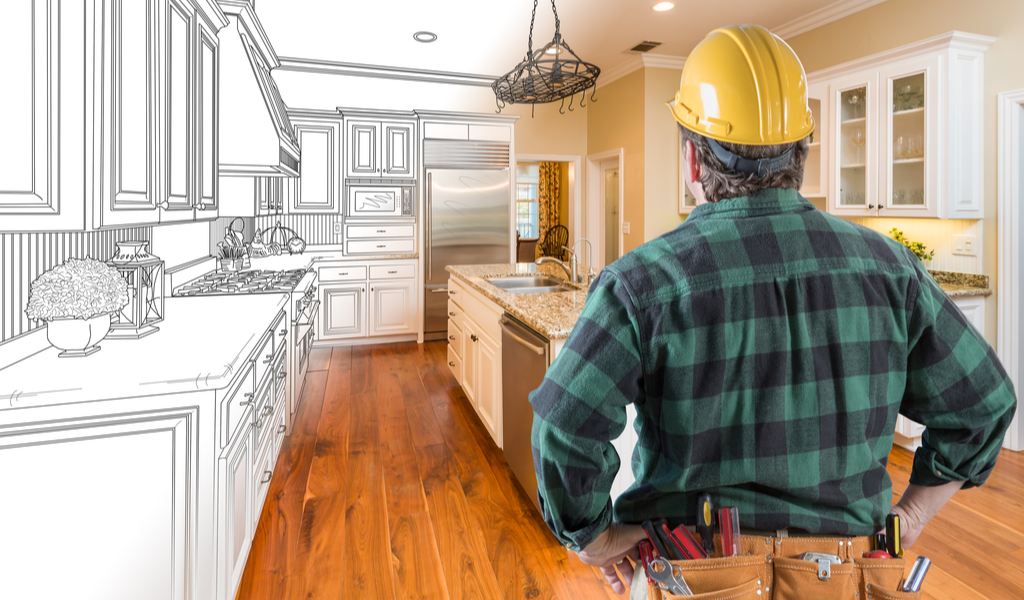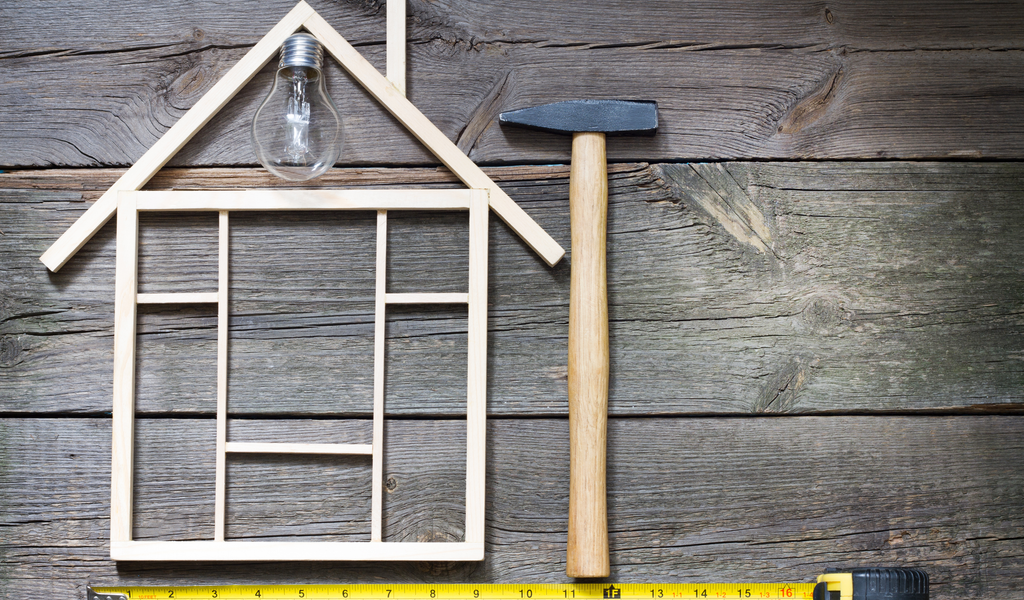2020 is the year that most of us spent more time at home than ever before in our entire adult lives. Naturally, we’ve been wanting to fix or improve things around the place that spend the most time in. Plus, we also have more time on our hands to fill.
Since March 1, 2020, roughly every 3 in 5 American homeowners (61%) have undertaken home improvement projects, according to a survey conducted by NerdWallet in August. This survey was conducted by The Harris Poll and had the participation of 1,414 homeowners. The survey found that on average, they were spending about $6,438 per home.
If you’re one of the 3 in 5, you will want to arm yourself with enough knowledge so you can get the best out of your renovation or improvement project in terms of value vs. cost. Whether you’re sprucing up your office space, fixing old and rundown aspects of your home, or installing new flooring, it’s easy to fall into mistakes that can prove to be quite expensive, so here are 6 that you’ll want to avoid!

Not Considering ROI
If you are doing it as a fun project to make your house more comfortable/beautiful, any project is worth your time and money, but if you plan on selling your house soon, you will want to focus on more than that. A lot of home improvement projects cost a lot of money, but they do not increase the value of the property by the same amount.
For instance, building a new bathroom costs about $50,000, but homeowners typically only recoup about 54% of that cost when it comes to added value. This is according to the 2020 Cost vs. Value Report published by Remodeling Magazine. The magazine also states that a minor kitchen remodel would be far more lucrative, as it has a return of about 78%.
If you are confused about a specific project that would be worth it, you can call your local real estate agent and ask them about what returns you can expect from it. Specific upgrades may be worth more or less depending on the local markets and even certain neighborhoods.
Not Having a Budget
Running out of funds in the middle of a home renovation project can spell disaster. Small costs can add up, and before you know it, you’ll be running out of cash! You may prefer a slightly more expensive tile, after all, it’s only a few bucks extra. But considering you’re going to have to buy more than a few to cover a 100 square feet kitchen, that is a massive extra expense.
Create a budget for all the expenses you expect to have and then add 10-20% to the total to allow for cost overruns. If you don’t know how much a specific project may cost, check out other similar renovation projects or use a project estimator calculator. You can also refer to sites like HomeAdvisor of Remodeling Magazine.
Making Hasty Decisions About Funding
According to the survey conducted by NerdWallet, about a third of homeowners who took up home renovation projects since March of this year have used cash on hand to fund such projects. 25% of them have used the money they had saved up for those projects specifically, and 14% used the money from their economic stimulus checks. If the money you use to fund your project isn’t affecting your daily needs, then there is no reason why you shouldn’t be using it. In fact, it is a smart way to avoid interest or debt.
However, if you are looking for ways to finance your project, you should explore your options carefully – and there are a lot of them! You can go for a home equity line of credit, a personal loan, a cash-out refinance or even use credit card debt as a short-term loan option. But you need to be careful when picking one because they all come with varying terms, interest rates, and costs. You can get the help of a home improvement financing calculator to help you weigh these costs and make a smart decision.

Not Researching Contractors
If you decide to get a professional to oversee the renovation project, make sure to get written estimates from different contractors so you can weigh your options. This isn’t just so you can pick the cheapest one, though. You will want to look over the references and credentials of each contractor, make sure they have their licenses up-to-date, and that they offer you a guarantee of work and a warranty as well.
Many reputable contractors are also members of professional trade groups such as the National Association of the Remodeling Industry or the National Association of Home Builders, so you can check that out as well. You can also check the Better Business Bureau to see if they have complaints and how those have been resolved. And finally, make sure to get an agreement drawn up with the contractor that you choose!
Not Having Renovation Permits
Permits are a way to ensure the protection of your home and safety. If you do not have the necessary approvals, your renovation may not meet local building codes, which may even affect your ability to sell the property in the future.
Contact your local municipality to learn about the details of permits you need to obtain and make sure to check that your contractor has the permits in hand before commencing work.
Always Choosing the Cheapest Option
You have meticulously planned a home renovation project that will inevitably cost you thousands of dollars, so don’t skimp out on quality just because there’s a cheaper option available. When it comes to such expenses, it’s natural to look for the options that cost less, but make sure that doesn’t mean cutting corners that may come back to bite you later on.
Your best bet is to pick the best quality product that fits your budget. Discuss the trade-offs between quality and price for your project with your contractor. You don’t want to be spending another chunk of money just a few months down the line fixing an issue caused by low-quality material used in the project!
A Final Note
Picking the right remodeling project can boost your home’s aesthetics and market value – but don’t fall into these costly mistakes. Do it right by setting a feasible budget, picking a reliable contractor, and choosing the best materials that fall under your budget. This way, you can enjoy a nice remodel and save yourself from expensive mistakes.



